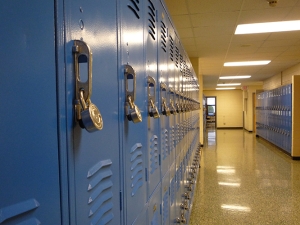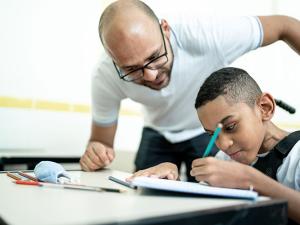

Research Expertise and Interest
mindsets, stereotypes, education-based motivation, large-scale psychological intervention, social cognition, teacher-student relationships, school-to-prison pipeline, discipline in K-12 schooling
Research Description
Dr. Jason Okonofua is a professor at University of California-Berkeley. Before assuming this position, he earned his doctorate at Stanford University with the guidance of Dr. Gregory Walton and Dr. Jennifer Eberhardt and currently works with them on a project that investigates psychological barriers to reintegration (return to home and school) for juvenile offenders.
Jason’s research program examines social-psychological processes that contribute to inequality. One context in which he has examined these processes is that of teacher-student relationships and race disparities in disciplinary action. His research emphasizes the on-going interplay between processes that originate among teachers (how stereotyping can influence discipline) and students (how apprehension to bias can incite misbehavior) to examine causes for disproportionate discipline according to race. The intersection of these processes, Jason hypothesizes, undermines teacher-student relationships over time, contributes to disproportionate discipline to racially stigmatized students, and ultimately feeds the “school-to-prison” pipeline. By investigating basic processes that contribute to misinterpreted and misguided disrespect among teachers and students, he aims to develop novel interventions that help racially stigmatized youth succeed in school and reduce their risk of discipline problems. For example, his empathic discipline intervention has halved yearlong suspension rates across multiple school districts and cut racial disparities in suspension rates by 45%.
His research has been published in top journals, including the Proceedings of the National Academy of Sciences and Science Advances. It has been funded by foundations such as Google and the Bill & Melinda Gates Foundation, and and it has been featured on a variety of popular media, including MSNBC, Reuters, Huffington Post, Daily Mail, Pacific Standard, Science Update, Education Week, and the Grio.
In the News
School Discipline Can Be Predicted, New Research Says. Is It Preventable?
Empathy Softens Teachers’ Biases, Cuts Racial Gap in Student Suspensions
When parole, probation officers choose empathy, returns to jail decline
Featured in the Media
A new UC Berkeley study discovered something that most of us already know deep down: Empathy can help someone become a better person. The results of the study, led by assistant professor of psychology Jason Okonofua, are impressive. After ten months, parole officers who took the "empathic supervision intervention," saw a 13% reduction in their parolees' recidivism rates. A 2011 Pew Research study found that the average national recidivism rate for released prisoners is 43%. So, dropping the rate by 13% over 20,000 APPs, means the intervention kept approximately 2,600 people out of prison. For more on this, see our press release at Berkeley News. Stories on this topic have appeared in several sources, including PsychNews Daily, The Academic Times, The Good News Network, The Crime Report, The Florida News Times, Tank's GoodNews , and Lake County News.



